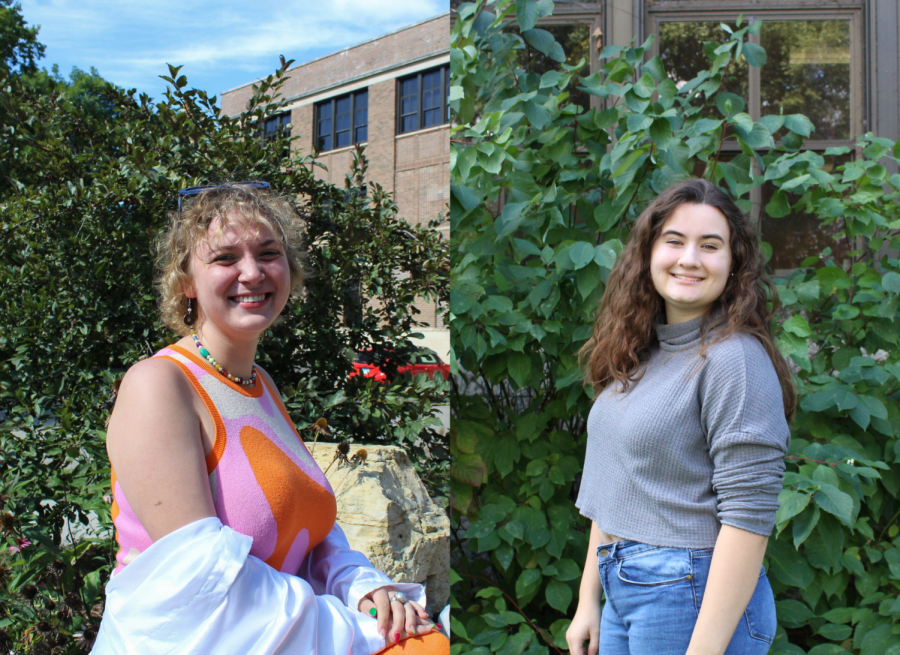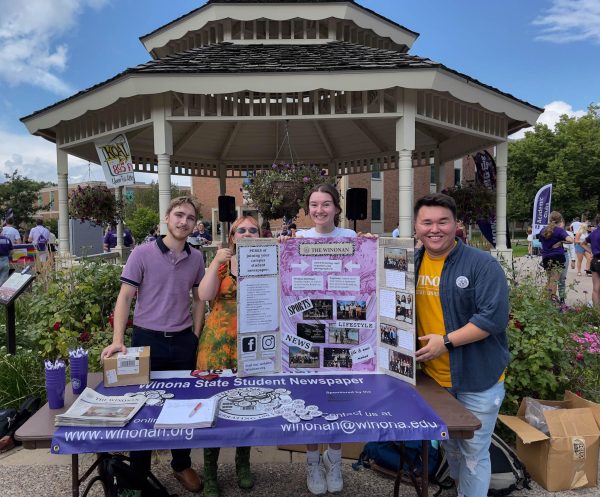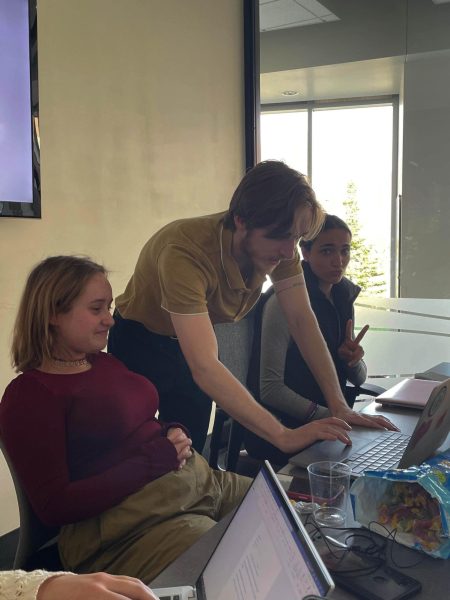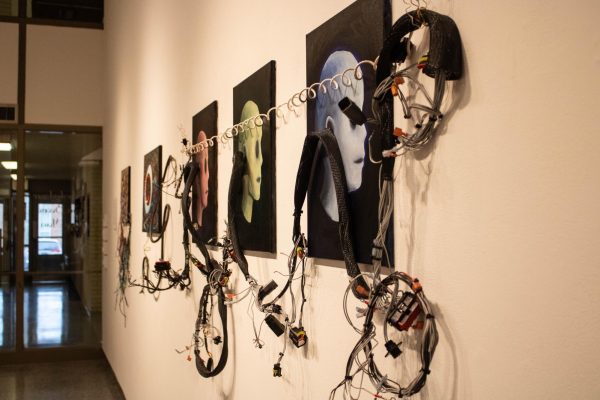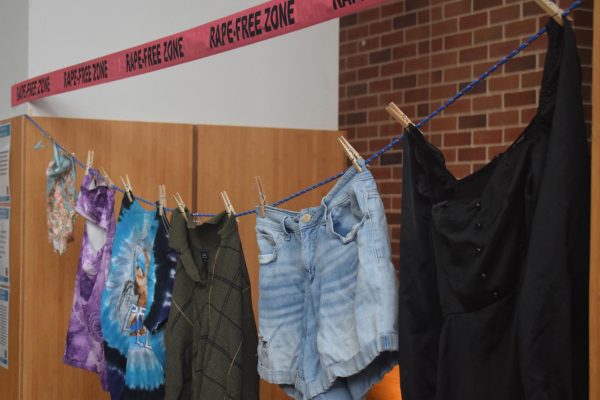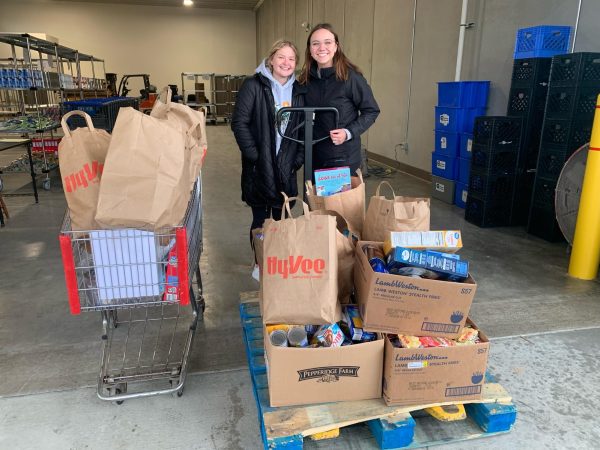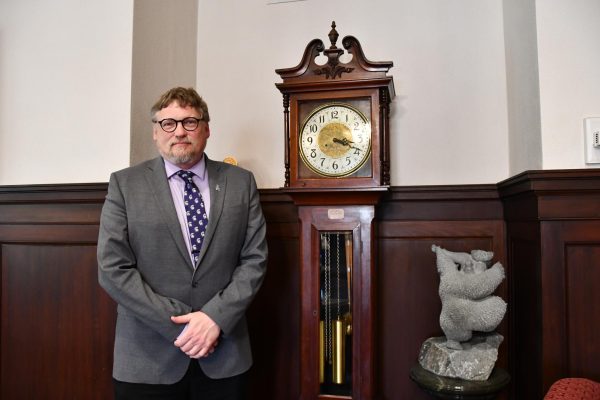Students react to overturning of Roe v. Wade
Cassidy Vogel, treasurer of the Reproductive Justice Club of WSU (left) and Brenna Ryan, president of Warriors for Life (right). Both had conflicting opinions on the overturning of Roe v. Wade from this summer.
October 5, 2022
On June 24, 2022, the United States Supreme Court overturned the court case of Roe v. Wade, which upheld almost 50 years of precedent regarding the right to get an abortion in America. Now, almost four months later, the impact of the Supreme Court decision is still felt by Winona State University students.
The overturning of Roe v. Wade is a moment in time that many students remember very vividly. Students with both pro-choice and pro-life standpoints remember the moment they heard about the Supreme Court’s decision. Brenna Ryan, president of the Warriors for Life club, stated her perspective on the morning of June 24.
“When I woke up and heard the news, I started crying tears of joy; it felt like a relief and like a step in the right direction for human rights,” Ryan stated. “This bigger fight is now 50 smaller fights in each state.”
Jenna Schabert, vice-president of Warriors for Life, echoed this sentiment by expressing her excitement for the states now having power.
“My initial reaction was excitement,” Schabert said. “I was really excited that people can actually vote on it, and actually have their thoughts and beliefs put into practice.”
For pro-life individuals, the overturning of Roe v. Wade was a moment of celebration; it left the decision of the legality of abortions to the states, rather than having it remain a federal issue. However, for others, the overturning of the almost 50-year-old precedent was devastating and left many worrying for the future of the country. Karina Kpahn, a biochemistry major who recently transferred to Winona State, expressed this sentiment.
“My initial reaction was definitely one of shock,” Kpahn said. “I was in a planning session at work when someone told us the news and it felt so unreal… everyone in the room talked about how this affected them, and I started to realize just how big the issue was.”
Cassidy Vogel, treasurer of the Reproductive Justice Club and legal studies major, was in a gender violence studies class when they heard the news of Roe v. Wade being overturned.
“I was just really crushed,” Vodel stated. “But I also spend a lot of time reading about the supreme court and doing research… so I wasn’t exactly shocked. It was crushing, but I almost should have expected it.”
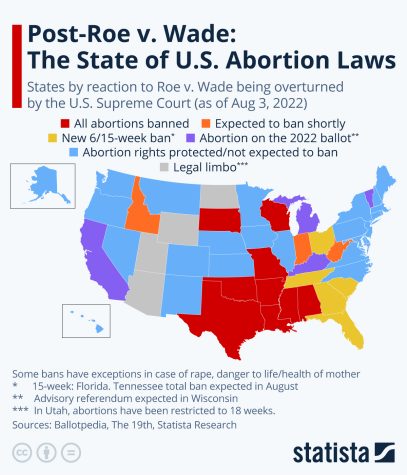
Vogel also discussed the legal concept of a “slippery slope.” When a precedent is overturned or something is placed into law, other related issues often begin to be impacted as well. Many U.S. citizens and Winona State students alike are worried for other rights.
“Once you do something, it’s going to keep going,” Vogel said. “When does it stop? When are condoms or plan B going to be considered a problem?”
The idea of intersectionality, or the overlap of social and structural disadvantages that come with social categorizations such as race, gender, sexual orientation and more was also brought up throughout many perspectives regarding the overturning of Roe v. Wade. Magdalene Houseman, another Winona State student, touched on this and other worries.
“As a queer woman, I was concerned for both my reproductive rights and the possibility of losing my right to marry another woman,” Houseman stated. “With the overturn of Roe, the right to privacy to the extent we were once afforded was no longer plausible; how could we go backwards instead of forwards?”
Mawatta Dukuly, member of Winona State University’s Black Student Union, expressed her concerns regarding the overturning as well.
“I was especially fearful for the future of Black women, and what it meant for us,” Dukuly stated. “Historically, we have had very little control over bodies, and we have extremely high maternal mortality rates. According to the statistics, Black women are three times more likely to die from a pregnancy-related cause than White women.”
The pro-choice and pro-life movements have been polarized since before the overturning of Roe v. Wade last summer, which has caused some issues between clubs and individuals on campus.
Schabert expressed her frustrations regarding these disagreements, stating that the negative stereotypes regarding pro-life individuals have almost dehumanized people in Warriors for Life and in pro-life individuals in general, and these have been seen more since the overturning.
“That’s been really frustrating because it’s very important to me to break those stereotypes and view people you disagree with as human beings with opinions, not the caricature of your enemy,” Schabert said. “I feel like a lot of media presence has been demonizing pro-lifers as all white christian republicans, and realistically within the pro-life movement, it’s so much more diverse than that.”
The Warriors for Life club on campus is looking to denounce these stereotypes; for example, Ryan herself spoke on the fact that not all pro-life individuals are white, christian, or even republican.
“Going along with breaking stereotypes, for me personally, I’m not even really a republican at all. This is one of my few republican views,” Ryan stated.
Regarding the specific laws put into place for each state, Ryan stated the importance in being thoroughly educated on what exactly the overturning of Roe v. Wade means for your area. Ryan stated that the outcomes of ectopic pregnancies and legal consequences to abortion services have various exceptions and that it is important to learn the facts before spreading information.
Many students on campus feel frustrated regarding the fact that the Supreme Court justices were not elected by our generation. Rather than having a set number of years in the Supreme Court, Supreme Court justices are appointed by the president and often stay in office for the rest of their lives unless impeached.
“I’m feeling very angry at the fact that I didn’t elect anyone on the Supreme Court and they’re there for life,” Vogel stated.
Voting in local and federal elections is important, no matter what political party or side of the argument you belong to. Ryan stated that although the overturn of Roe v. Wade was an initial moment of celebration for pro-life individuals and groups, there is still work to be done regarding healthcare services and the like.
“Even putting the issue of abortion aside, we’re gonna have mothers who want support,” Ryan said. “Maybe even financial support for women, and also kind of trying to do some repairs on the foster care system and adoption system; stuff like that is going to be very very important in the future.”
Malia Hermerding, president of the Winona State University College Democrats club, emphasized the importance of voting in this year’s elections following the overturn of Roe v. Wade.
“This election, no matter what anyone says, abortion and healthcare for women, are on the ballet,” Hermerding stated. “This verdict means that everyone should be registering to vote and educating themselves about who is running for office in this election; the future of this country and women or people with a uterus are in our hands and we are the deciding factor for this election.”























































